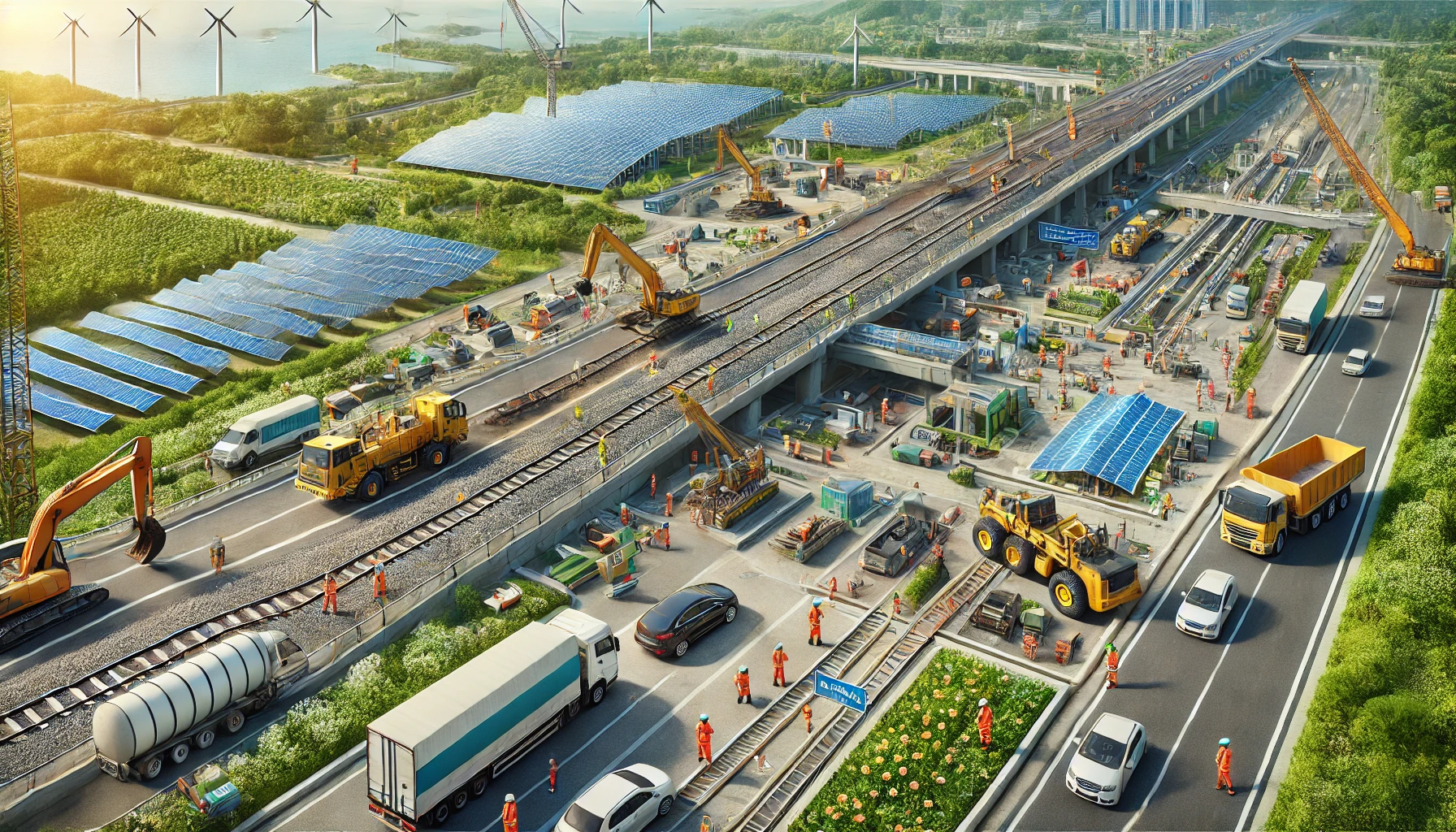President Cyril Ramaphosa has reiterated his administration’s commitment to scaling up infrastructure investments, aiming to stimulate economic growth, create jobs, and improve living standards across South Africa. This pledge was highlighted during the inaugural meeting of the Presidential Infrastructure Commission Council (PICC) under the seventh administration.
The council convened to discuss critical issues, including combating crime and extortion at construction sites, implementing priority infrastructure projects, and accelerating infrastructure investments for the country’s socio-economic development.
Infrastructure as a Catalyst for Growth
“Our administration prioritizes scaling up infrastructure investments to grow the economy, create jobs, enhance access to basic services, and improve citizens’ quality of life. Public sector capital expenditure has risen for the second consecutive year, reaching R233 billion in 2023, an 11% increase from the previous year,” President Ramaphosa said.
To sustain this momentum, the government is actively involving private sector stakeholders in achieving its infrastructure goals, signalling a collaborative approach to address the challenges of declining infrastructure investment in previous years.
Progress on Strategic Integrated Projects (SIPs)
The council reported the completion of 19 Strategic Integrated Projects (SIPs), valued at R26 billion, across various sectors:
Transport: 6 projects
Water and Sanitation: 3 projects
Energy: 1 project
Human Settlements: 4 projects
Student Accommodation: 5 projects
Currently, 82 SIPs, worth R437 billion, are in the construction phase. The gazetted SIPs from 2020 to 2024 have reached a cumulative project value of R3 trillion, driven by key initiatives such as the Eskom Programme, Embedded Generation National Programme, and Green Hydrogen National Programme.
Municipal Infrastructure Support and Pilot Initiatives
The PICC Council highlighted the adoption of the "Five-Case Model" for municipal infrastructure projects, focusing on prioritization, business case development, fund mobilization, innovative solutions, and monitoring. Four municipalities – Govan Mbeki (Mpumalanga), Kagisano-Molopo (North West), Umngeni (KwaZulu-Natal), and Metsemaholo (Free State) – have been selected for the “Adopt a Municipality” pilot initiative.
This initiative will tackle incomplete projects and infrastructure challenges, leveraging resources and expertise from both local and international partners. It aims to deliver measurable improvements within 24 months.
Combating Crime and Extortion in Construction
Acknowledging the construction industry’s pivotal role in reducing unemployment and driving development, the council condemned the rising crime and extortion activities at construction sites.
Despite efforts to embed social facilitation and involve law enforcement, incidents persist. Recommendations to curb this trend include:
Allocating more resources to law enforcement agencies,
Introducing policy reforms in the construction sector,
Encouraging industry best practices for security and community engagement, and
Strengthening partnerships between infrastructure project leaders and local communities.
The Eight Pathways for Infrastructure Development
The council identified eight strategic pathways to bolster infrastructure investment and growth over the next five years:
Institutional Coordination: Establishing Infrastructure South Africa (ISA) as the central hub for infrastructure projects.
Centralized Planning: Streamlining project prioritization through a gateway mechanism.
Budget Reforms: Advancing financial reforms to unlock infrastructure funding.
Regulatory Streamlining: Addressing approval bottlenecks to accelerate project timelines.
Municipal Bulk Infrastructure: Enhancing funding for essential municipal infrastructure.
Unlocking Funding Sources: Expanding public and private funding avenues.
Regulatory Strengthening: Improving the governance framework for construction projects.
Mitigating Risks: Reducing tender cancellations, social unrest, and crime through improved governance and law enforcement collaboration.
Job Creation and Economic Recovery
The construction sector added 176,000 jobs in the second and third quarters of 2023, contributing to a 1.4% reduction in the national unemployment rate. This underscores the sector’s role in South Africa’s recovery efforts.
The seventh administration’s infrastructure agenda signals a transformative period for South Africa, focusing on innovation, efficiency, and inclusivity. By prioritizing infrastructure development and addressing systemic challenges, the government aims to position the country on a path toward sustainable economic growth and improved living standards for all its citizens.











